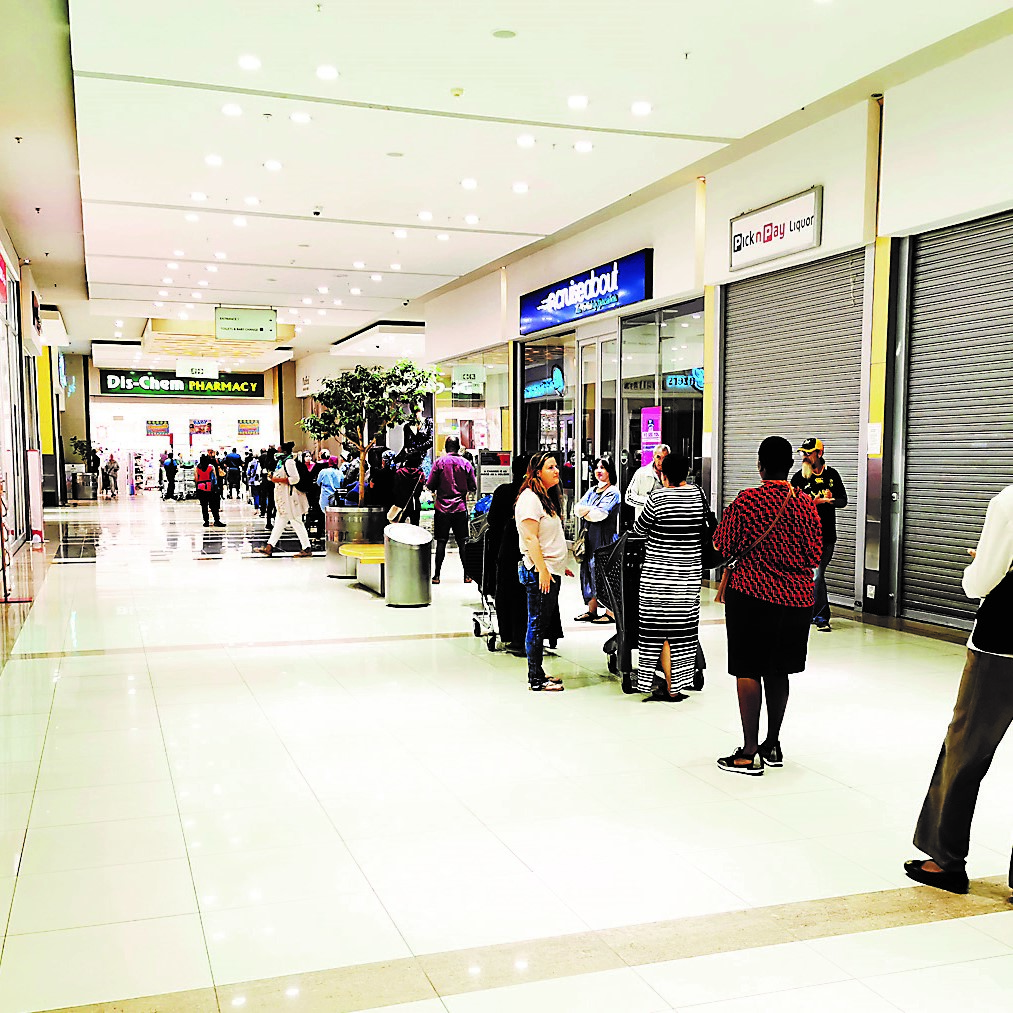click to dowload our latest edition
CLICK HERE TO SUBSCRIBE TO OUR NEWSLETTER


Published
4 years agoon
By
adminJORDAN MOSHE
“That doesn’t mean the lockdown isn’t working, it’s because we’re waiting for results. Lockdown can still be effective in helping us flatten the curve.”
Medical experts Meyberg, Dr Daniel Vorobiof, Dr Sheri Fanaroff, and psychologist David Abrahamson addressed hundreds of questions from viewers about the coronavirus pandemic.
“Our situation isn’t hopeless,” said Meyberg, a pulmonologist. “We can’t panic, but must be informed, work together, and find a way forward.”
Meyberg said that the anticipated jump in numbers would be partly due to the fact that our laboratories are lagging with testing, with many results not yet confirmed. Nevertheless, he stressed the need to avoid hysteria.
He recommended getting a “flu shot”.
Fanaroff, a family physician, agreed, saying there were two types of vaccine available this year, but both are equally effective at combatting seasonal flu.
“Your system can be more compromised if you have both regular flu and coronavirus,” she said.
“Pharmacies have the flu vaccine in stock, and certain doctors are waiting for them. The health minister has announced that they will be in short supply, and suggested that we prioritise those who are older or immune-compromised, but everyone should have one if they can.”
A flu vaccine doesn’t render you more susceptible to the virus, and should be had by everyone, irrespective of age or existing medical conditions. This includes cancer patients and those who are recovering from cancer, both of whom are considered more at risk under the circumstances.
For this reason, Vorobiof, an Israel-based oncologist who has piloted the Belong.Life support application for those with cancer, has set out to offer additional support to cancer patients afflicted by COVID-19.
“A few weeks ago, we thought we should create a group for cancer patients with the virus, and the results have been overwhelming,” he said. “Cancer is a disease that affects the immune system, so patients are asking a lot of questions.
“Cancer patients are at higher risk not just of contracting the disease, but are also at risk of a more severe course of the disease. It’s important for our patients to follow health regulations,” Vorobiof said.
“Not all cancer patients are compromised. There are those who haven’t received treatment for a while who are in a good immune condition. Those who recently had radiation or chemo are at higher risk.”
Regarding elective treatment and scans, Vorobiof said that these should be delayed if a person has undergone one recently, pointing out that it’s better to delay them and consult doctors remotely where necessary.
Similarly, any visits to doctors or hospitals in person should be avoided. Should you suspect that you have the virus, it’s imperative that you call your general practitioner before going anywhere. Only those who have good reason to be tested based on possible exposure and symptoms will be tested, according to the medical experts.
“Please don’t go for testing yourself,” said Meyberg. “There is a backlog, and we can’t cope. You could be tested only after discussion with a practitioner, and if you display all the symptoms. Don’t self-medicate or self-diagnose, nor search the internet for where to get tested. Call us doctors or the National Institute for Communicable Diseases (NICD).”
He and Fanaroff stress that no home testing kits are available, and online offers of such products shouldn’t be entertained. Similarly, advice and tips offered on social media for preventing or curing the virus need to be treated with some scepticism and plenty of common sense.
“Silver spray, hot liquids, and hair dryers do nothing against the coronavirus,” said Vorobiof. “This is nonsense. They have no proven efficacy. Nothing can really modulate your immune system, so vitamins don’t really help in this situation. Proper hygiene and good sense is what we’re recommending.”
Abrahamson, a respected psychologist, said that caring for your mental well-being is equally important. He emphasised the need to be conscious of the toll the virus is taking on our emotions and minds.
“It’s understandable that people are anxious,” he said. “We thrive on predictability and consistency, neither of which are present in this situation. We can’t follow routines or do what we are used to doing.”
To compound the problem, we are unable to interact with other people, a typical response in times of crisis. It’s therefore essential that we take time out to get to grips with the emotional upheaval, setting aside at least a few minutes to be alone where possible.
“Take time away from your kids to recharge,” said Abrahamson. “We are now spending more time with our families, but that doesn’t mean not having your own space. Take time out from social media and news as well.”
Establishing a daily routine can also help ease anxiety, he said, because it adds an element of consistency to daily life. “Don’t feel like you’re on holiday. Structure gives us consistency. Still, remember to be flexible about it – don’t follow a routine like a prison timetable.”
As to whether we should expect the lockdown to last longer than 21 days, Vorobiof and Meyberg agree that time will tell.
“We have 18 days of lockdown left,” said Meyberg. “We won’t cure the virus in 18 days, but want to slow things down and are hoping for an improvement.”
Vorobiof agrees. “Those who want to know when it will end might not like the answer they get. Israel is already in its third week of isolation, and I think we will still be here after Pesach. The numbers continue climbing, and we need to see them flatten before anything changes.
“There’s still a long way to go. We’re not sure how long, but we need to be ready to wait.”
